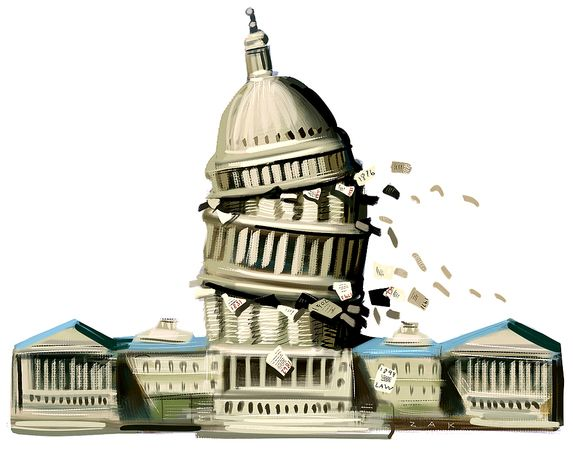Healthcare spending in the US is one of the largest expenditures in our country. For this reason, everyone wants to grab a piece or the pie, or at least control how healthcare dollars are being spent. Mandates about our healthcare system flow out of the halls of our government like never before. But, enough mandates! Do we really want politicians making medical decisions for us? Or should doctors be able to practice medicine and do right for our patients. In the exam room, it all too often feels like Big Brother is in the exam room along with me, and I need to obtain his permission before ordering tests or prescribing medications.
Doctors, for the most part, feel that we no longer have much control over the direction the healthcare system is headed. In fact, 44% of doctors polled on SERMO (the largest social media network exclusive to physicians) responded that they have very little control over healthcare policy. On the front-lines, doctors need to heed insurance company guidelines to get certain tests performed. This happens even when it is clear that a patient has departed from an expected clinical course. The decision is left in the hands of a non-medical, or medical if it is raised to peer review, person. This person has never seen, examined, or even spoke with my patient. Sometimes, they do real my encounter notes. But, most often the decision is determined based on an ICD-9 code. Patients are indeed now numbers to private and government insurers.
Doctors can no longer keep a medical record to be able to follow the patients’s clinical course. The government stepped in and made up the Meaningful Use program, which began its existence with the passage of the HITECH Act in 2009. Now, we must entered “metrics” (as the government calls them, into the patients’ charts. While some may think this a wise idea, I can guarantee they have never actually undertaken the task while evaluating and treating patients in real-time. It is a bottle-neck in the practice’s work-flow, from the receptionist who has to ask the patient’s race and email address (even when the patient doesn’t want to give it) to the medical assistance who needs to document smoking status, among many others, even on newborn babies. Patients don’t like it either. It annoys them when the doctor and other staff spend the time looking at the computer instead of them. Does anyone not treating patients actually get this?
The PCM (patient centered medical home) is another vacuüm of time waste. We did certify and most of the requirements we have done for years. However, the paperwork burden to be certified can kill a practice. To submit all the required screenshots for certification, it required dedicating one of my staff full-time to the staff for weeks to complete. Small practices do not have IT departments or extra hands on deck.
And now the recent passage of the MACRA bill will pass more regulatory burdens onto doctors. People rejoice in the demise of the SGR. But, at what cost? Our payment models are now mandated by federal law. Does anyone see how this can possibly be a good thing? The same people who gave us the SGR which took years to repeal, now have a bigger control over the healthcare system.
It is hard to keep up with all these new regulations. But, as doctors we have t o or face dire consequences for not complying. People have full-time jobs in healthcare policy and regulation. Doctors need to learn it in between patients. How much money does it cost to regulate healthcare so much? Does anyone suppose it may actually save money just to let doctors practice medicine?
 Copyright secured by Digiprove © 2015 Linda Girgis, MD, FAAFP
Copyright secured by Digiprove © 2015 Linda Girgis, MD, FAAFP


